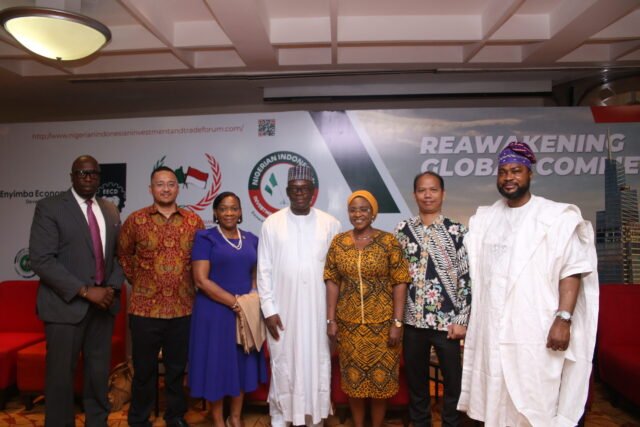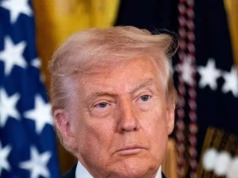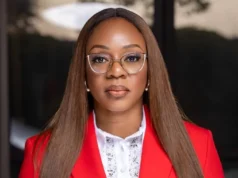In the bustling halls of Lagos on Tuesday, an important moment unfolded that signalled fresh promise for two dynamic nations. At the fourth edition of the Nigerian‑Indonesian Chamber of Commerce & Industry (NICCI) Investment and Trade Forum, the Federal Republic of Nigeria and the Republic of Indonesia reaffirmed their shared commitment to expanding bilateral trade and investment ties. The forum, bearing the theme “Unlocking Potentials and Building a Sustainable Economic Future”, marked a pivotal step in the evolution of the relationship between Africa’s largest economy and Southeast Asia’s seasoned industrial powerhouse.
At the opening, NICCI President Mr Ishmael Balogun emphasised that Nigeria and Indonesia are not just trading partners but “builders of a bridge connecting Africa and Asia”. He underscored trade growth from US$1.73 billion in 2019 to over US$6 billion in 2023, signalling the momentum of bilateral exchanges.
Against this backdrop, Indonesia’s incoming Ambassador to Nigeria, Mr Bambang Suharto, reiterated Jakarta’s readiness to deepen cooperation across agribusiness, healthcare, renewables, and manufacturing. Meanwhile, Nigeria’s Vice-President, represented by Princess Zahrah Audu Mustapha of the Presidential Enabling Business Environment Council (PEBEC), outlined reforms by the Tinubu administration to make the Nigerian business climate more inviting.
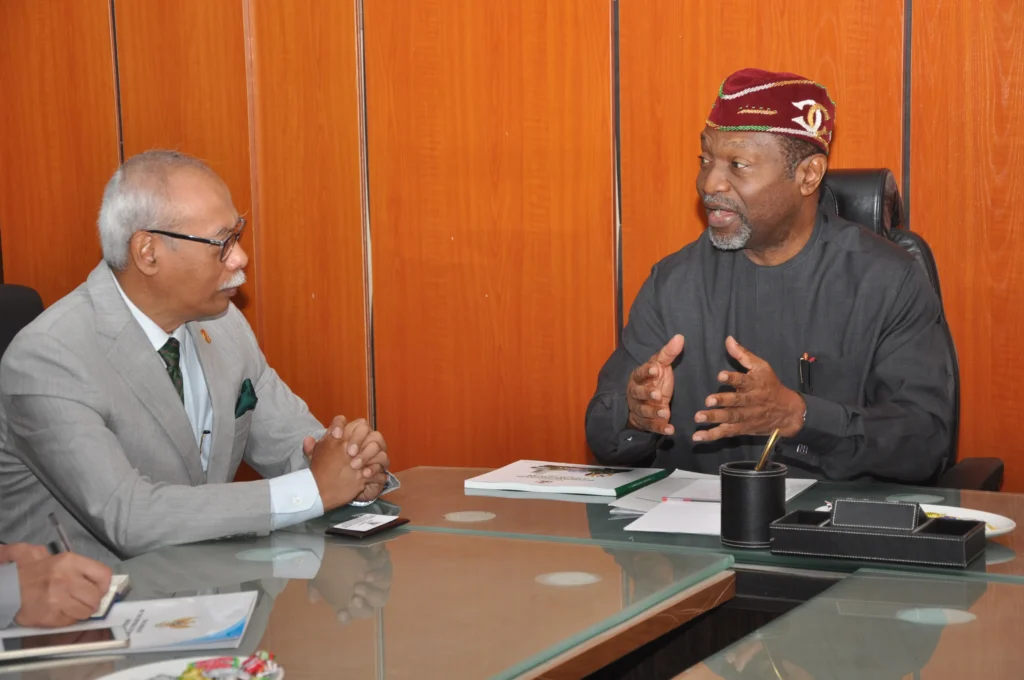
Table of Contents
Sectors of Promise: From Agriculture to Renewables
The gathering in Lagos (organised by NICCI) made clear that the scope of Nigeria-Indonesia collaboration extends well beyond traditional trade stereotypes. Balogun invited Indonesian firms to examine opportunities in Nigeria with particular focus on energy, agriculture, healthcare, manufacturing, renewable energy and technology.
On the Nigerian side, recent reforms — according to Princess Mustapha’s remarks — centre on reducing bureaucratic friction, streamlining business registration and improving transparency across critical sectors. These efforts are designed to enhance investor confidence and to improve Nigeria’s attractiveness for long-term foreign capital.
Indonesia’s Ambassador-designate highlighted both nations’ distinctive strengths: Nigeria’s large domestic market and status as Africa’s gateway, and Indonesia’s manufacturing capacity and ASEAN-anchored regional reach. Together, the two countries envision linking policy with progress, and investment with inclusive growth.
The Trade Trajectory & Strategic Implications
Numbers matter, and in this partnership, they speak volumes. Trade between Nigeria and Indonesia rose sharply from approximately US$1.73 billion in 2019 to more than US$6 billion by 2023. While some earlier reports cite a figure of US$4.7 billion for 2023, the consistent message is upward momentum.
This growth is not simply a statistic—it signals broader shifts in global trade dynamics, investment flows and regional economic alignments. For Nigeria, deepening ties with Indonesia opens doors into Southeast Asia, allowing for knowledge transfer, diversification away from oil dependency, and enhanced manufacturing capacity. For Indonesia, engagement with Nigeria presents access to the African Continental Free Trade Area (AfCFTA) market, raw materials, and a strategic partner in the Global South.
Crucially, NICCI’s role as a platform for both governments and private-sector actors should not be underestimated. Balogun described the chamber as a “key platform driving investment between both nations”. Beyond the high-level pleasantries, this suggests a sustained institutional backbone supporting the evolving relationship.

Practical Next Steps & What it Means for Nigeria
So, what does this renewed Nigeria–Indonesia partnership practically mean for us on the ground in Nigeria? And what should we look out for?
- Sectoral Investment Flows: The forum has opened clear signals that Indonesian companies will be exploring Nigerian opportunities in agriculture (such as agro-processing, oil palm, cassava), healthcare infrastructure, renewable energy, and manufacturing. Nigerian firms should prepare to engage with Indonesian counterparts, understand their expectations and align with Nigeria’s strengths (labour, raw materials, location).
- Ease of Doing Business Reforms: The Tinubu administration, via PEBEC, is prioritising reforms to make Nigeria more business-friendly. That means faster company registration, clearer policies, and improved transparency. Entrepreneurs and investors should monitor these reforms closely and consider positioning themselves early.
- Strategic Gateway Role: For Indonesia, Nigeria is not just a market—it is a hub for African engagement. Nigerian states and local governments should view Indonesian capital and expertise as a bridge into Asian value chains and global supply networks.
- Sustainability and Diversification: The emphasis on renewable energy, manufacturing and technology points towards a shift from raw commodity export to value-added production and sustainable investment. Nigeria must ensure it doesn’t simply export raw materials but transitions into higher-value stages.
- Institutional Platforms Matter: Bodies like NICCI (and the NICCI-supported forum) provide the linkages between government policy and private-sector action. Nigerian business leaders, investors and policy-makers should engage actively with such platforms to maximise benefits and stay ahead of the curve.
In my view, this Nigeria–Indonesia rapprochement is timely. At a moment when the global economy is re-configuring and Africa is seeking new poles of growth beyond traditional partners, Nigeria’s assertive engagement with Indonesia signals strategic foresight. The key now is in execution—turning vision into contracts, promises into projects, and meetings into measurable outcomes.
For Nigeria, the benefits of this partnership are real: job creation, technology transfer, higher export earnings, diversified industries, and a stronger voice in South–South co-operation. The onus will be on policy consistency, transparent regulation, and active facilitation of investment. If these align, the elevated trade volume and strengthened cooperation could become a model for other African–Asian partnerships.
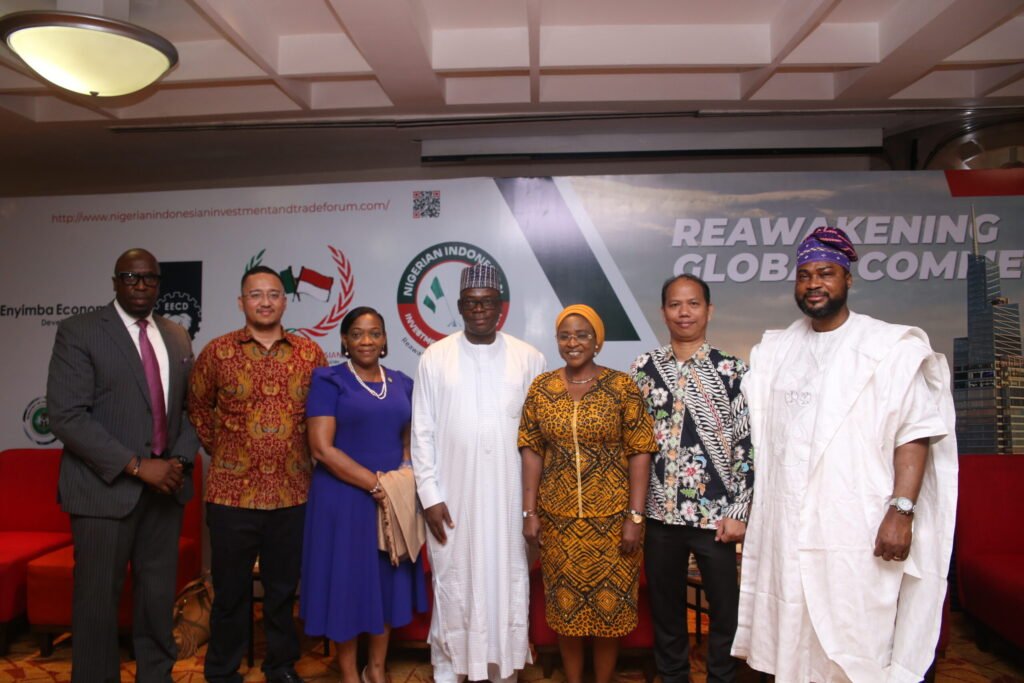
Conclusion
The forum held in Lagos this week was more than a photo-op—it marked a deepening of the Nigeria–Indonesia economic relationship framed around purposeful investment, mutual growth and strategic alignment. With trade surging, institutional support firming, and expansive sectors on the table, Nigeria stands to gain significantly. The challenge now is to translate intent into action, ensuring that this partnership translates into tangible opportunities for Nigerian citizens, industries and regions. The time to move from words to work is now.
Join Our Social Media Channels:
WhatsApp: NaijaEyes
Facebook: NaijaEyes
Twitter: NaijaEyes
Instagram: NaijaEyes
TikTok: NaijaEyes


